
The Vibrant Enclave of Sarbet
Nestled in the heart of Addis Ababa, Sarbet is a lively and diverse neighborhood that offers an authentic taste of Ethiopian culture. Known for its bustling streets and friendly locals, Sarbet is a place where tradition meets modernity. As you wander through its streets, you'll find a mix of old and new, from traditional Ethiopian markets to contemporary cafes and restaurants. Sarbet is an excellent spot for food enthusiasts looking to indulge in local cuisine. The neighborhood is home to numerous eateries serving mouthwatering dishes like injera, tibs, and kitfo. Don't miss the chance to enjoy a cup of freshly brewed Ethiopian coffee at one of the many coffee houses that dot the area. Coffee is a significant part of Ethiopian culture, and Sarbet offers some of the best brews in the city. Beyond its culinary delights, Sarbet is also a hub for local arts and crafts. You can explore various shops and stalls selling handmade jewelry, textiles, and other unique souvenirs. For those interested in history and culture, the nearby National Museum of Ethiopia is a must-visit. Here, you can learn about Ethiopia's rich heritage and see the famous fossil of Lucy, one of the oldest hominid skeletons ever discovered. Whether you're looking to shop, eat, or simply soak in the vibrant atmosphere, Sarbet has something for everyone. Its blend of cultural richness and modern amenities makes it a must-visit destination for any traveler exploring Addis Ababa.
Local tips in Sarbet
- Visit early in the morning to experience the local markets at their liveliest.
- Wear comfortable shoes as you'll be walking a lot and some streets can be uneven.
- Carry cash, as many local vendors do not accept credit cards.
- Try to learn a few basic phrases in Amharic to enhance your interactions with locals.
- Don't miss the Ethiopian coffee ceremony; it's a unique cultural experience.
The Vibrant Enclave of Sarbet
Nestled in the heart of Addis Ababa, Sarbet is a lively and diverse neighborhood that offers an authentic taste of Ethiopian culture. Known for its bustling streets and friendly locals, Sarbet is a place where tradition meets modernity. As you wander through its streets, you'll find a mix of old and new, from traditional Ethiopian markets to contemporary cafes and restaurants. Sarbet is an excellent spot for food enthusiasts looking to indulge in local cuisine. The neighborhood is home to numerous eateries serving mouthwatering dishes like injera, tibs, and kitfo. Don't miss the chance to enjoy a cup of freshly brewed Ethiopian coffee at one of the many coffee houses that dot the area. Coffee is a significant part of Ethiopian culture, and Sarbet offers some of the best brews in the city. Beyond its culinary delights, Sarbet is also a hub for local arts and crafts. You can explore various shops and stalls selling handmade jewelry, textiles, and other unique souvenirs. For those interested in history and culture, the nearby National Museum of Ethiopia is a must-visit. Here, you can learn about Ethiopia's rich heritage and see the famous fossil of Lucy, one of the oldest hominid skeletons ever discovered. Whether you're looking to shop, eat, or simply soak in the vibrant atmosphere, Sarbet has something for everyone. Its blend of cultural richness and modern amenities makes it a must-visit destination for any traveler exploring Addis Ababa.
Iconic landmarks you can’t miss
National Museum of Ethiopia
Explore Ethiopia's rich heritage at the National Museum, home to Lucy's remains and captivating cultural artifacts showcasing the nation's history.
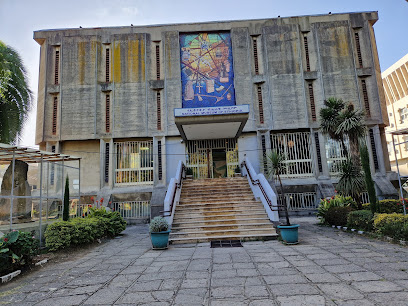
Unity Park
Explore Unity Park in Addis Ababa, where nature, art, and history come together in a stunning urban oasis perfect for all ages.
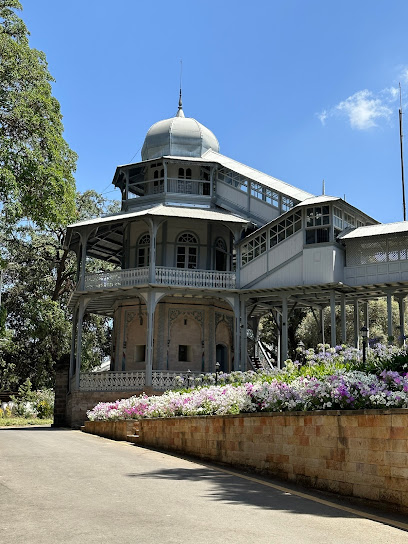
Meskel Square
Experience the vibrant heart of Addis Ababa at Meskel Square, a historical landmark filled with culture, community, and celebration.
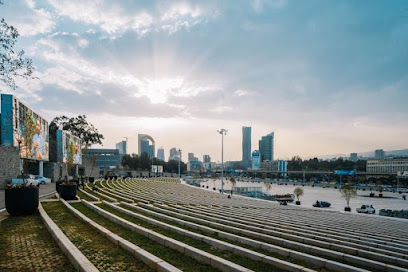
Red Terror Martyrs' Memorial Museum የቀይ ሽብር መታሰቢያ ሙዚየም
Discover the poignant history of Ethiopia at the Red Terror Martyrs' Memorial Museum, a tribute to resilience and remembrance in Addis Ababa.
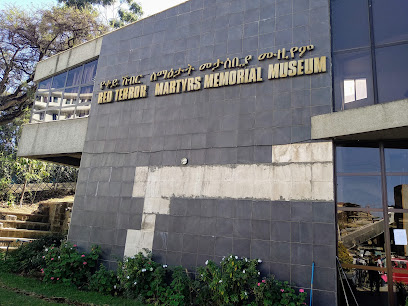
Emperor Tewodros II Square
Explore the vibrant Emperor Tewodros II Square in Addis Ababa - a historical landmark celebrating Ethiopia's rich heritage and culture.
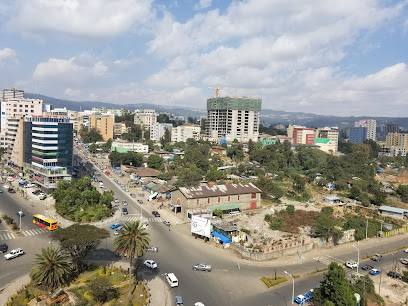
Lion of Judah Statue
Explore the Lion of Judah Statue in Addis Ababa, a majestic symbol of Ethiopia's rich heritage and cultural identity, surrounded by vibrant city life.
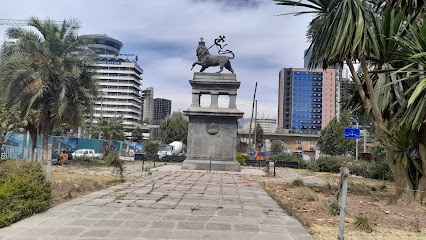
Dilachin Monument
Discover the Dilachin Monument in Addis Ababa, a historical landmark symbolizing Ethiopia's journey to freedom and resilience.
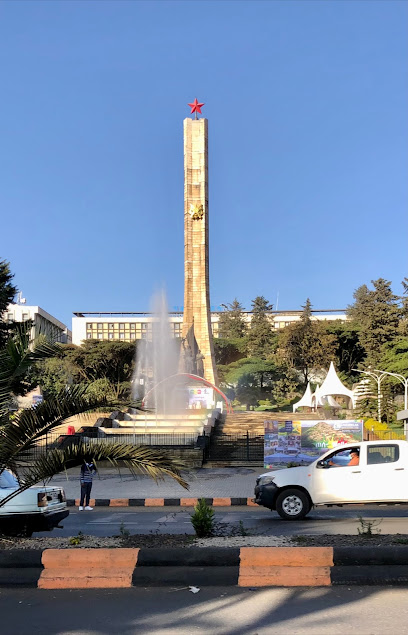
Yekatit 12 Monument ( የካቲት 12 መታሰብያ ሐውልት )
Explore the resilience of Ethiopia at Yekatit 12 Monument, a historic landmark in Addis Ababa celebrating the nation's strength and spirit.
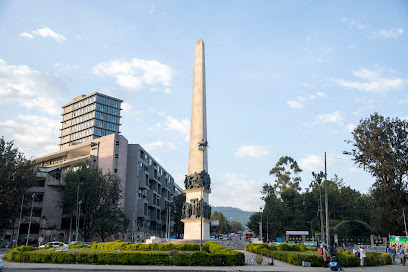
Pushkin Square | Sarbet | ፑሽኪን አደባባይ | ሳርቤት
Explore Pushkin Square in Addis Ababa, a vibrant cultural landmark filled with art, local cuisine, and the dynamic spirit of the city.
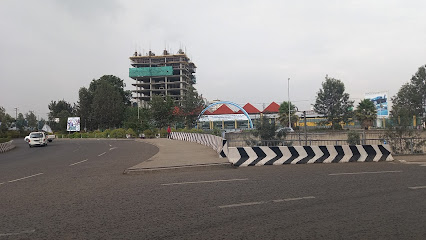
Sarbet
Experience the vibrant culture and community spirit of Sarbet, the lively town square in Addis Ababa, where tradition meets modern city life.
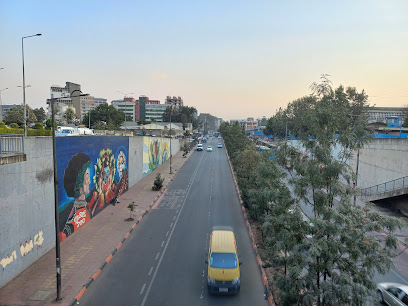
Unmissable attractions to see
National Museum of Ethiopia
Explore the National Museum of Ethiopia, a rich tapestry of history, culture, and art showcasing the essence of Ethiopia's heritage.
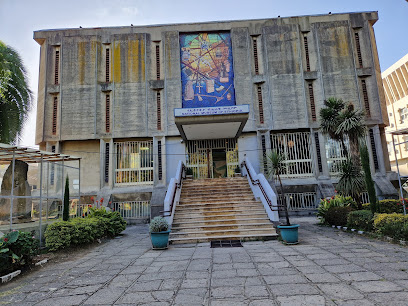
Medhanealem Cathedral
Explore the stunning Medhanealem Cathedral in Addis Ababa, a masterpiece of Ethiopian Orthodox architecture and a cultural landmark.
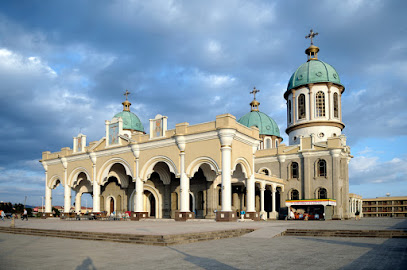
Holy Trinity Cathedral
Discover the divine beauty of Holy Trinity Cathedral, a stunning Orthodox church and cultural landmark in Addis Ababa, Ethiopia, rich in heritage and history.
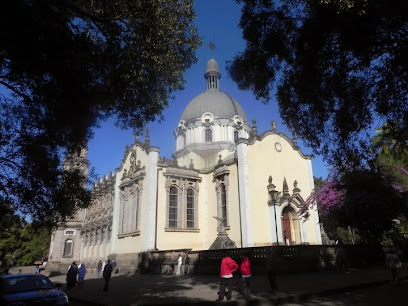
Shola Market | Megenagna
Explore the vibrant Shola Market in Addis Ababa, a cultural hub filled with local crafts, delicious street food, and a lively atmosphere.
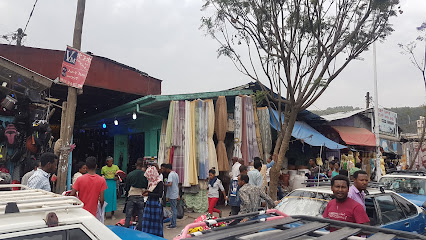
Ethnological Museum
Explore the Ethnological Museum in Addis Ababa and delve into Ethiopia's rich cultural heritage through diverse artifacts and exhibits.
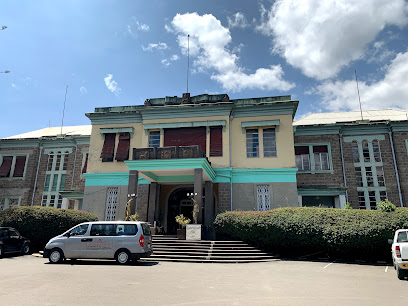
Bora Amusement Park | Bole
Experience the joy of thrilling rides and family fun at Bora Amusement Park in Bole, Addis Ababa, a perfect getaway for tourists of all ages.
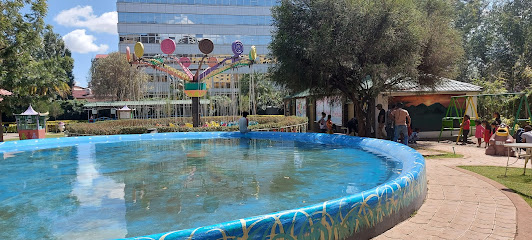
Gulele Botanical Garden
Explore the lush landscapes and serene beauty of Gulele Botanical Garden in Addis Ababa, a botanical haven for nature lovers and peace seekers.
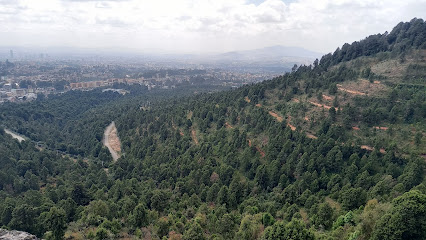
Modern Art Museum
Explore the vibrant world of contemporary art at the Modern Art Museum in Addis Ababa, where creativity meets cultural heritage.
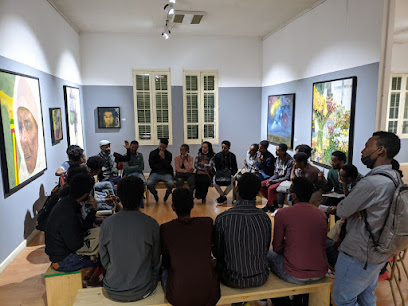
Essential places to dine
Yod Abyssinia Traditional Restaurant
Discover the rich flavors and vibrant culture of Ethiopia at Yod Abyssinia Traditional Restaurant in Addis Ababa.
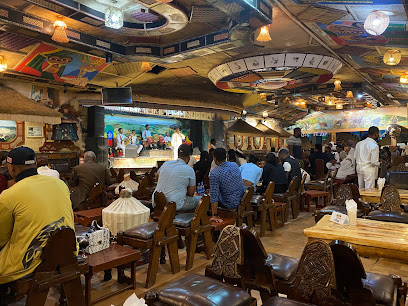
Yod Abyssinia Cultural Restaurant | Karl Square | ዮድ አቢሲኒያ የባህል ምግብ ቤት | ካርል አደባባይ
Discover Ethiopia's rich culinary heritage at Yod Abyssinia Cultural Restaurant with authentic dishes and vibrant cultural performances.
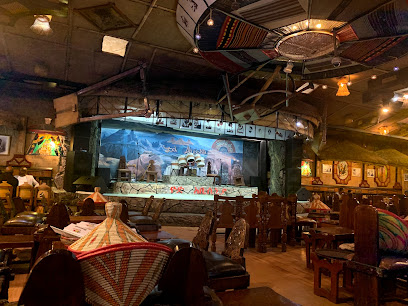
La Mandoline French Restaurant
Experience exquisite French dining at La Mandoline, where culinary elegance meets authentic flavors in Addis Ababa.
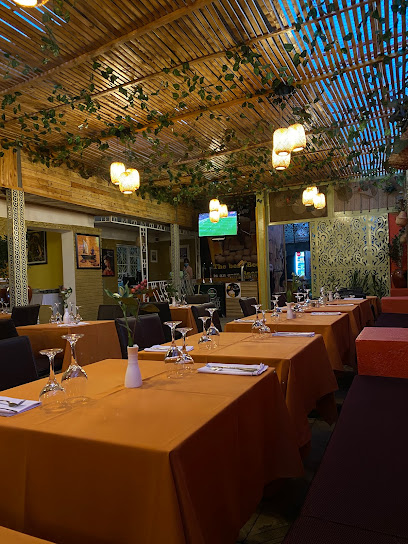
Bettucci Ristorante & Pizzeria
Discover the essence of Italy at Bettucci Ristorante & Pizzeria in Addis Ababa with authentic flavors and inviting atmosphere.
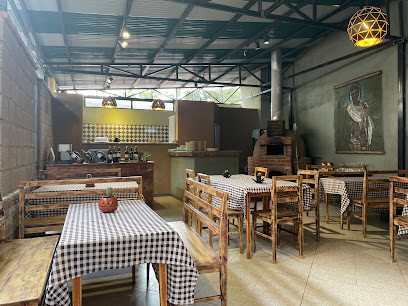
Mamma Mia Italian Restaurant & Bar
Discover authentic Italian flavors at Mamma Mia Italian Restaurant & Bar in Addis Ababa - where every dish tells a story.
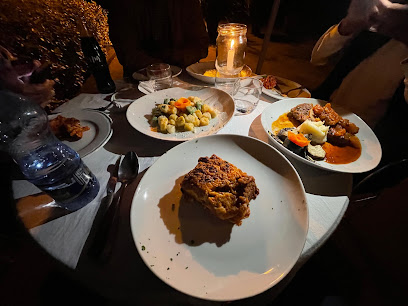
Arirang 2 Korean Restaurant (Masirang)
Experience authentic Korean cuisine at Arirang 2 Korean Restaurant in Addis Ababa's Sarbet area - where flavors meet tradition.
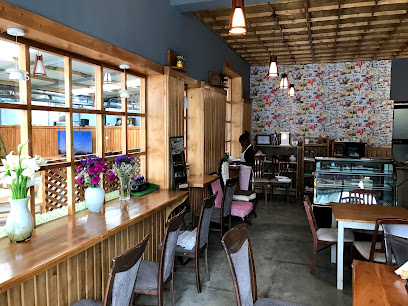
Temsalet Kitchen | sarbet |Iconic kitchen
Discover the flavors of Ethiopia at Temsalet Kitchen - where tradition meets modernity in every delicious bite.
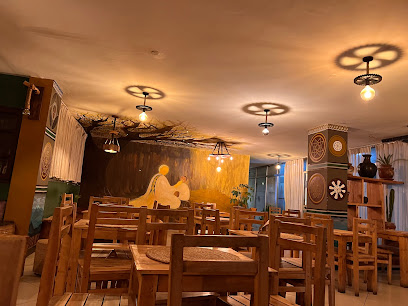
Garden Paradise Restaurant and Bar | Sarbet | ጋርደን ፓራዳይዝ ባርና ሬስቶራንት | ሳርቤት
Discover authentic Ethiopian flavors at Garden Paradise Restaurant and Bar in Addis Ababa—your perfect culinary retreat amidst lush surroundings.
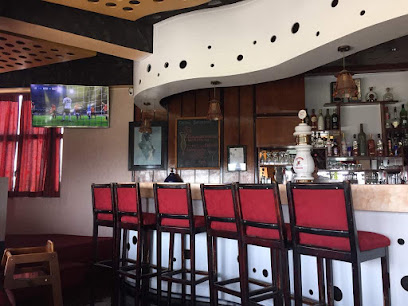
Tarik Bar & Restaurant | Sarbet | ታሪክ ባር እና ሬስቶራንት | ሳር ቤት
Discover authentic Ethiopian flavors at Tarik Bar & Restaurant in Addis Ababa – an unforgettable culinary journey awaits!
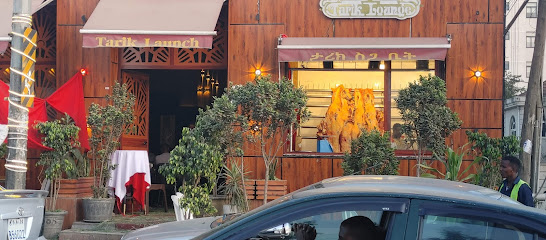
LAFRIQUE A LA MODE CULTERUL RESTAURANT
Discover authentic African cuisine at Lafrique à la Mode Restaurant in Addis Ababa - a must-visit for food lovers seeking cultural richness.
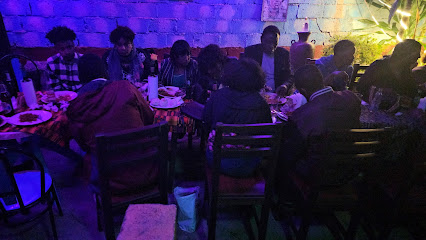
Markets, malls and hidden boutiques
The Food Boutique | Sarbet | ዘ ፉድ ቡቲክ | ሳርቤት
Explore The Food Boutique in Addis Ababa for a taste of gourmet delights, featuring local and international delicacies in a unique grocery experience.
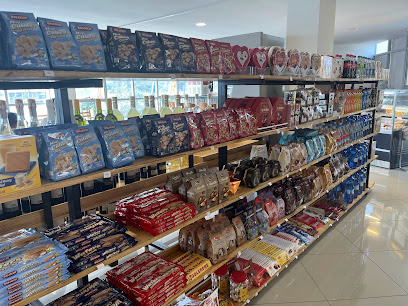
Tibeb Leather Works | Sarbet
Explore the craftsmanship of Tibeb Leather Works, a premier destination for authentic Ethiopian leather goods and unique souvenirs in Addis Ababa.
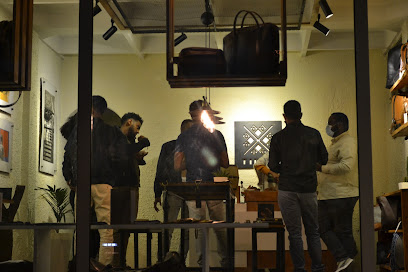
All In One Souvenir & Gift Shop
Explore a delightful selection of authentic Ethiopian handicrafts and souvenirs at All In One Souvenir & Gift Shop in Addis Ababa.
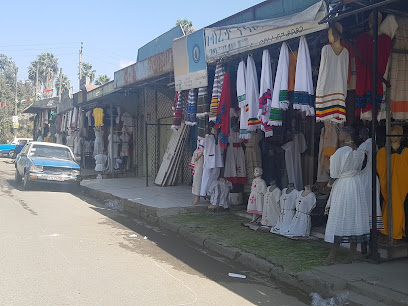
Abdi Negash Antique Store
Explore Ethiopia's rich cultural heritage at Abdi Negash Antique Store, a must-visit antique haven in Addis Ababa filled with unique treasures.
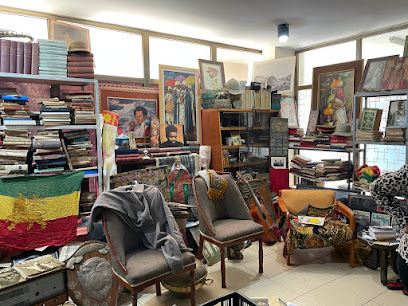
Truly Unique Shop
Explore Truly Unique Shop in Addis Ababa for exquisite footwear blending local craftsmanship with contemporary style.

Gebrekidan Souvenirs And Ethiopian Artifacts Gallery
Explore the rich cultural heritage of Ethiopia at Gebrekidan Souvenirs and Ethiopian Artifacts Gallery, where authentic craftsmanship meets creativity.
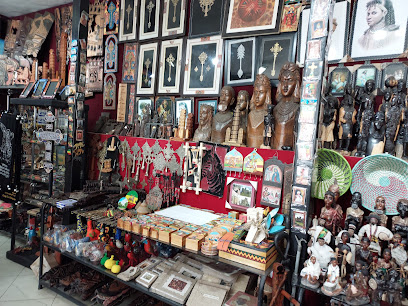
Ellilta Products
Explore the vibrant culture of Ethiopia through unique, handcrafted treasures at Ellilta Products in Addis Ababa.
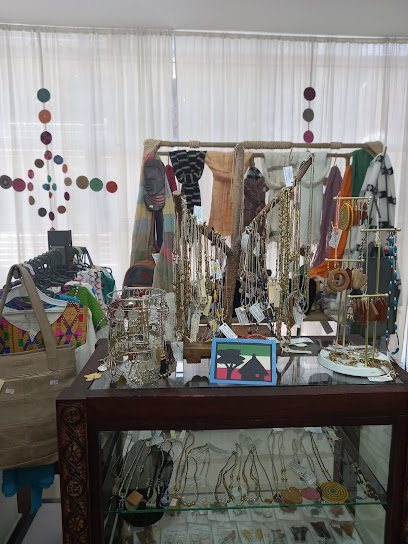
R & M Fashion (Sarbet Branch)
Explore the vibrant styles of R & M Fashion in Addis Ababa, where local culture meets contemporary trends in an inviting shopping atmosphere.
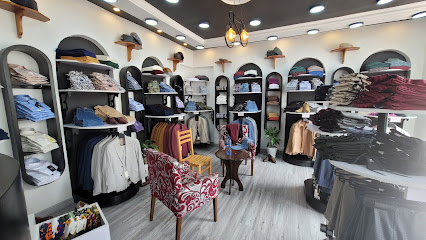
H,fl
Explore H,fl in Addis Ababa for unique Ethiopian gifts, handcrafted treasures, and a warm cultural experience that embodies local artistry.

Yordi's Art Ethiopian Art
Explore Yordi's Art in Addis Ababa for unique Ethiopian crafts and gifts, celebrating the rich cultural heritage and artistry of the region.
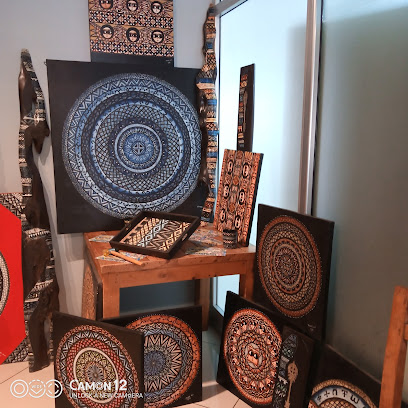
Essential bars & hidden hideouts
Union Cocktail Bar & Restaurant
Experience the vibrant flavors of Ethiopia at Union Cocktail Bar & Restaurant, where grilled specialties meet crafted cocktails in a lively setting.
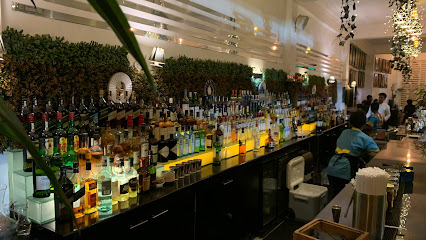
Black Rose Lounge
Experience the vibrant nightlife of Addis Ababa at Black Rose Lounge, where exquisite cocktails meet a lively atmosphere.
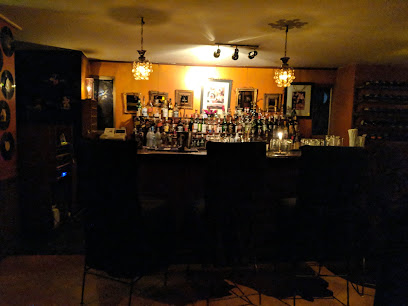
Dusk Addis Rooftop Lounge and Cocktails
Discover breathtaking views and a vibrant atmosphere at Dusk Addis Rooftop Lounge, the ultimate cocktail experience in Addis Ababa.
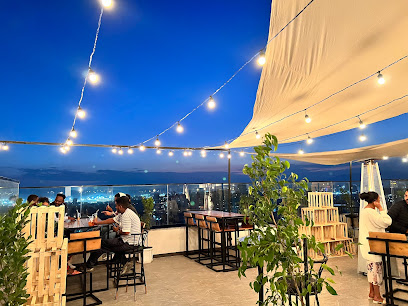
Kiss Addis
Discover the vibrant atmosphere of Kiss Addis, a premier lounge in Addis Ababa offering a fully stocked bar and a perfect retreat for relaxation.
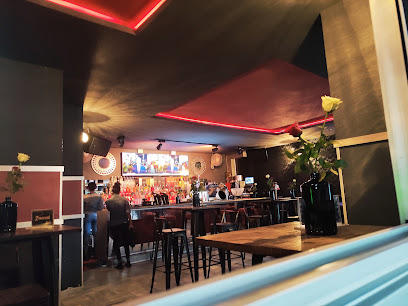
Rosemary Lounge & Restaurant
Discover the vibrant atmosphere and diverse culinary offerings at Rosemary Lounge & Restaurant in the heart of Addis Ababa.
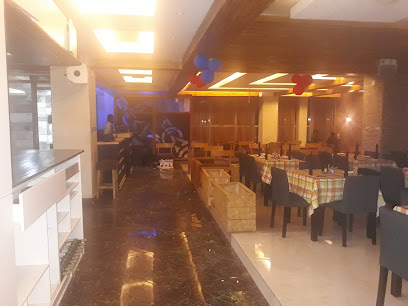
Tarik Bar & Restaurant | Sarbet | ታሪክ ባር እና ሬስቶራንት | ሳር ቤት
Discover the authentic flavors of Ethiopia at Tarik Bar & Restaurant, where vibrant local cuisine meets a welcoming atmosphere in Addis Ababa.

Viking Bar
Discover the vibrant nightlife of Addis Ababa at Viking Bar, a lively spot for locals and tourists to unwind with drinks and entertainment.
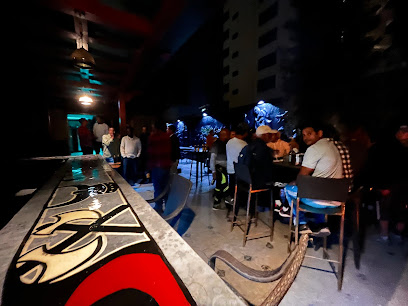
Stanley's Bar
Discover the lively ambiance and diverse drink selection at Stanley's Bar, a must-visit nightlife spot in Addis Ababa.
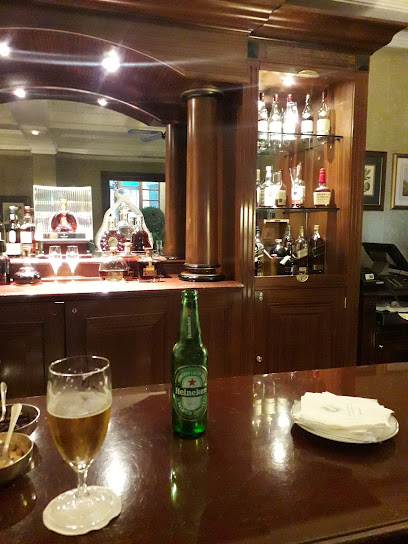
Red Rose Addis Grill & Cocktail Bar
Discover the flavors of Ethiopia at Red Rose Addis Grill & Cocktail Bar, where vibrant cuisine meets a lively atmosphere in the heart of Addis Ababa.
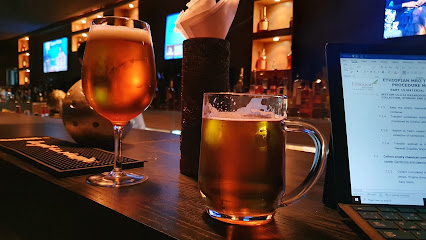
Dawed bercha abakoran
Discover Dawed Bercha Abakoran in Addis Ababa, where exquisite wines meet a cozy atmosphere for an unforgettable experience.
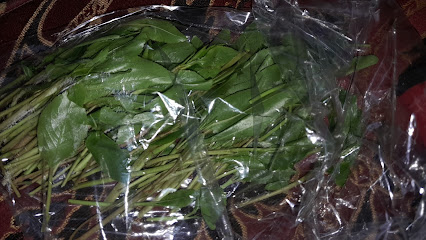
Local Phrases
-
- Helloሰላም
[selam] - Goodbyeመልካም
[melkam] - Yesአዎ
[aw] - Noአይ
[ay] - Please/You're welcomeእንዴት
[endeṭ] - Thank youአመሰግናለሁ
[amesegnalehu] - Excuse me/Sorryእባክህ
[ebakih] - How are you?እውነታዊ ነህ?
[ewenätawi neh?] - Fine. And you?አስለምንህ ነህ፡፡ ሁለምንህ?
[aslemneh neh? hulmenh?] - Do you speak English?እንዴት እንግሊዝኛ ትክክለኛ?
[endeṭ englizna tikikiligna?] - I don't understandአልተኛኝም
[alṭegnem]
- Helloሰላም
-
- I'd like to see the menu, pleaseምንጋር ሊገለጥ እንዴት ነው፡፡
[mengar ligeleti endeṭ new?] - I don't eat meatየእርግዝ አልተመናብተኝም
[ye'erigiz altemenabtem] - Cheers!ሰላም!
[selam!] - I would like to pay, pleaseእባክህ እስማማለን፡፡
[ebakih esemamalen]
- I'd like to see the menu, pleaseምንጋር ሊገለጥ እንዴት ነው፡፡
-
- Help!እርምጃ!
[erimja!] - Go away!እንዴት ጥሩ!
[endeṭ t'iru!] - Call the Police!ፖሊስ ጠይቅ አድርጉ!
[polis t'iye adirgu!] - Call a doctor!ዶክተር ጠይቅ አድርጉ!
[dokter t'iye adirgu!] - I'm lostተው ሙሉኝም
[tew mulunem] - I'm illእስማማለች
[esemamalech]
- Help!እርምጃ!
-
- I'd like to buy...ምንጋር የምንሆነኝ ነው፡፡
[mengar yemenhoneng new?] - I'm just lookingብለው ሊመለስ ነው
[blew limales new] - How much is it?እንዴት ውስጥ ነው?
[endeṭ wust new?] - That's too expensiveእያን ብዙ ይደረገህ
[eyan busi yederageh] - Can you lower the price?ደግሞ የገና ማገና ነህ?
[degimo yegna magena neh?]
- I'd like to buy...ምንጋር የምንሆነኝ ነው፡፡
-
- What time is it?ሰዓት ስለሆነ ነው?
[s'at selehone new?] - It's one o'clockአንድ ሰዓት ነው
[and s'at new] - Half past (10)አምስት ሰዓት
[amsit s'at] - Morningጥዋት
[t'wat] - Afternoonከምሽቱ
[kemshitu] - Eveningማታ
[matat] - Yesterdayትላንት
[talant] - Todayዛሬ
[zar] - Tomorrowነገ
[neg] - 1አንድ
[and] - 2ሁለት
[hulet] - 3ሶስት
[sost] - 4አራት
[arat] - 5አምስት
[amsit] - 6ስድስት
[sidist] - 7ሰባት
[sebat] - 8ስምንት
[siment] - 9ዘጠኝ
[zeten] - 10አስር
[asir]
- What time is it?ሰዓት ስለሆነ ነው?
-
- Where's a/the...?በዚህ ምን ነው?
[bezih meng new?] - What's the address?አድማስ ለማወቅ ነው?
[admas lemaወki new?] - Can you show me (on the map)?ስዚል እንዴት እንደገናለን?
[sizil endeṭ endegnalen] - When's the next (bus)?ያለበት ለማወቅ ነው?
[yalebet lemaወki new?] - A ticket (to ....)ቲኬት (ወደ ....)
[ticket (wede ....)]
- Where's a/the...?በዚህ ምን ነው?
History of Sarbet
-
Sarbet, a vibrant neighborhood in Addis Ababa, has roots that trace back to the early 20th century when it started developing as part of the expanding capital of Ethiopia. The area was initially a rural outskirts, primarily occupied by agricultural lands and settlements of the local population. With the establishment of Addis Ababa as the capital in 1886, the surrounding regions, including Sarbet, began to transform into residential areas.
-
During the Italian occupation of Ethiopia from 1936 to 1941, Sarbet saw significant urban development. The Italians implemented modern urban planning and infrastructure projects, which included the construction of roads and public buildings. This era marked a shift from a predominantly rural landscape to a more urbanized environment, influencing the architectural style and layout of the neighborhood.
-
As Addis Ababa grew, Sarbet became a melting pot of various cultures and ethnicities. The neighborhood is characterized by a mix of traditional Ethiopian architecture and modern buildings, reflecting the diverse cultural influences that have shaped it over the decades. This cultural diversity is evident in the local markets, religious institutions, and community gatherings that take place throughout the year.
-
In recent decades, Sarbet has become known for its educational institutions, including several schools and colleges that attract students from across the region. This focus on education has fostered a community that values learning and development, further enhancing the neighborhood's reputation as a hub for families and young professionals.
-
Today, Sarbet faces the challenges of urbanization, including rapid population growth and the strain on infrastructure. Despite these challenges, the neighborhood continues to thrive, with new businesses and residential developments emerging. Efforts are being made to preserve the historical aspects of Sarbet while accommodating modern needs, creating a dynamic and evolving community within Addis Ababa.
Sarbet Essentials
-
Sarbet is easily accessible from various neighborhoods in Addis Ababa. The main transport options include taxis, ride-hailing services like Uber and Bolt, and public buses. To reach Sarbet from the city center (Merkato), take a taxi which should take around 15-20 minutes depending on traffic. Alternatively, local buses heading towards Bole or Kazanchis often pass through Sarbet.
-
Sarbet is relatively small and can be explored on foot. For longer distances, public buses and minibuses operate frequently, connecting Sarbet to other neighborhoods. Taxis are also readily available. In addition, bicycle rentals are becoming popular, making it an eco-friendly option for exploring the area.
-
Sarbet is generally safe for tourists, but it is wise to remain vigilant. Avoid areas that are poorly lit at night and keep an eye on your belongings, especially in crowded places. Petty crime such as pickpocketing can occur, particularly near busy markets. It is advisable to avoid walking alone in isolated areas after dark.
-
In case of an emergency, dial 999 for police assistance. For medical emergencies, visit a nearby hospital or clinic, such as the Ethio-German Hospital. It's advisable to have travel insurance that covers medical issues. Pharmacies are available in Sarbet for minor health concerns, but ensure to have any necessary medications with you.
-
Fashion: Do dress modestly, particularly when visiting religious sites; avoid revealing clothing. Religion: Do respect local customs; take off your shoes when entering homes and some establishments. Public Transport: Do be courteous and offer your seat to elderly passengers; don’t eat or drink on public transport. Greetings: Do greet locals with a smile and a handshake; avoid overly familiar gestures. Eating & Drinking: Do sample local dishes and accept food offerings; don’t waste food or refuse hospitality, as this can be seen as disrespectful.
-
To experience Sarbet like a local, consider visiting the nearby markets for fresh produce and local delicacies. Engaging with vendors can provide insight into local culture. Also, explore the local coffee houses to enjoy traditional Ethiopian coffee ceremonies. Attend community events or festivals if your visit coincides with them for a deeper connection to local traditions.
Nearby Cities to Sarbet
-
Things To Do in Debre Markos
-
Things To Do in Awasa
-
Things To Do in Bahir Dar
-
Things To Do in Lalibela
-
Things To Do in Dire Dawa
-
Things To Do in Arba Minch
-
Things To Do in Harar
-
Things To Do in Gondar
-
Things To Do in Jinka
-
Things To Do in Dikhil
-
Things To Do in Ali Sabieh
-
Things To Do in Mekele
-
Things To Do in Arta
-
Things To Do in Tadjoura
-
Things To Do in Djibouti City








